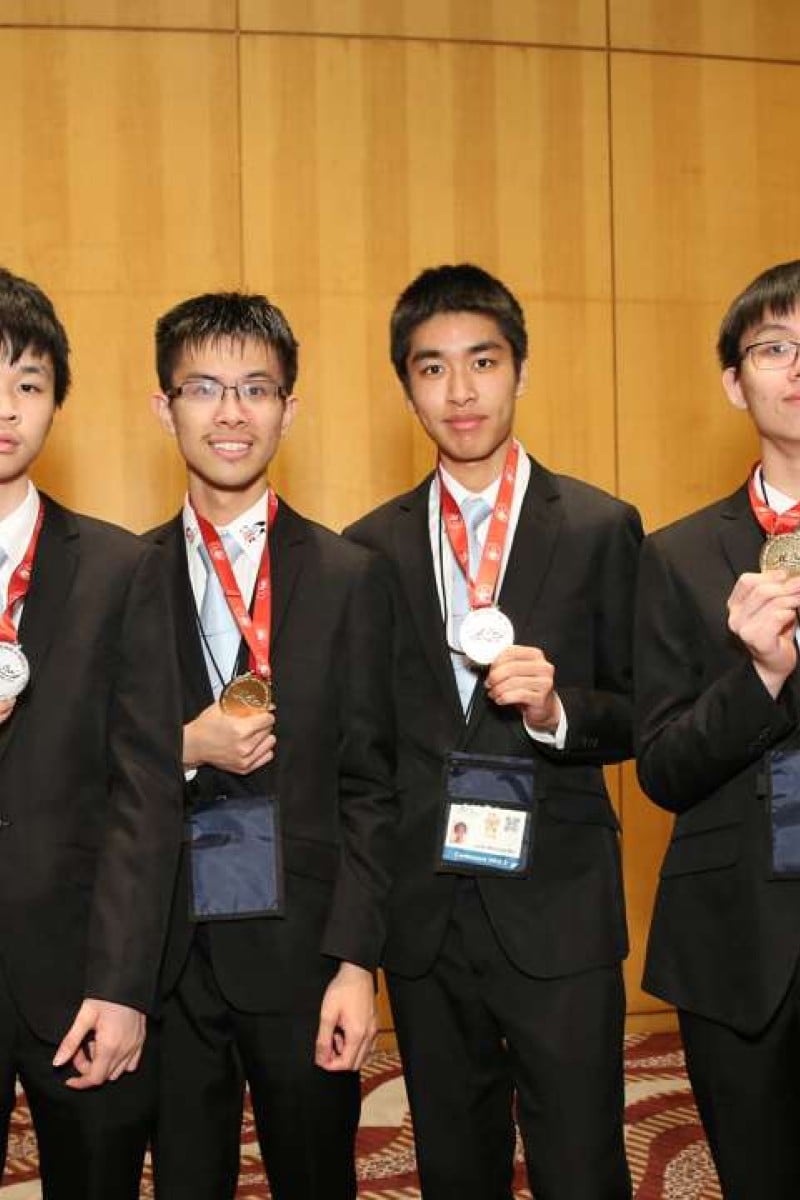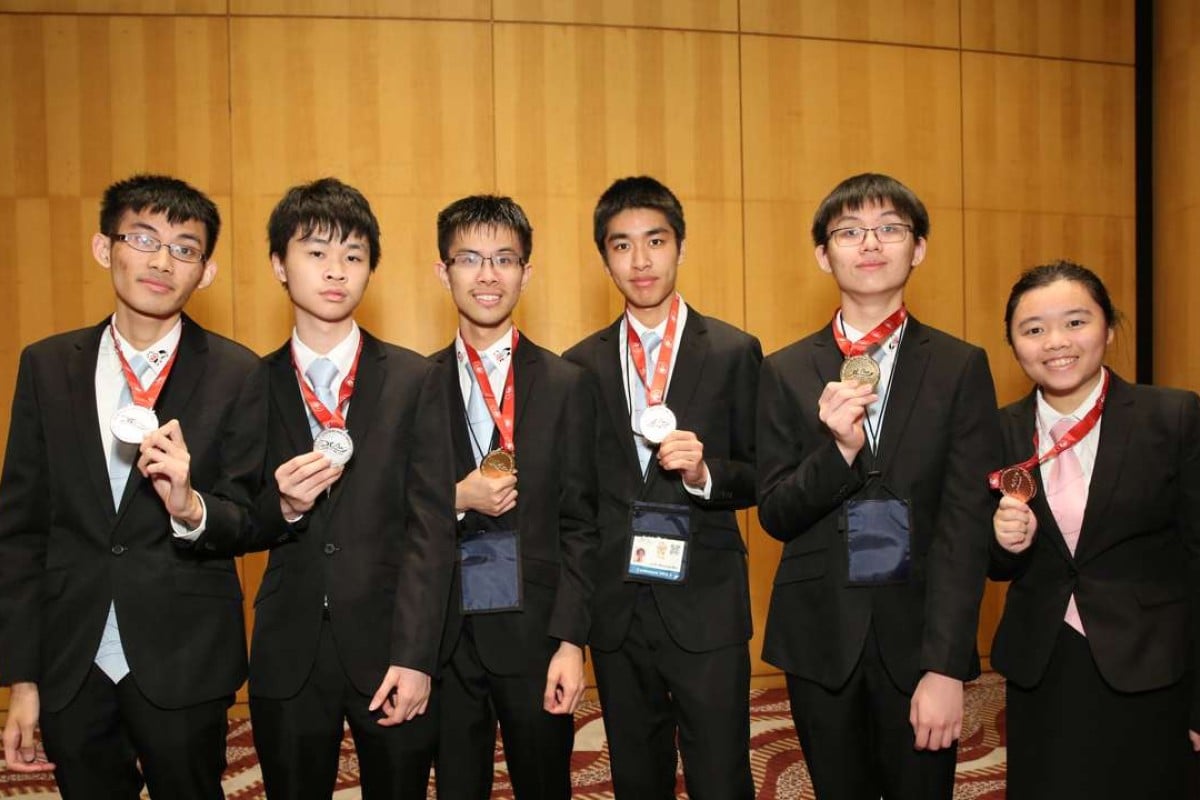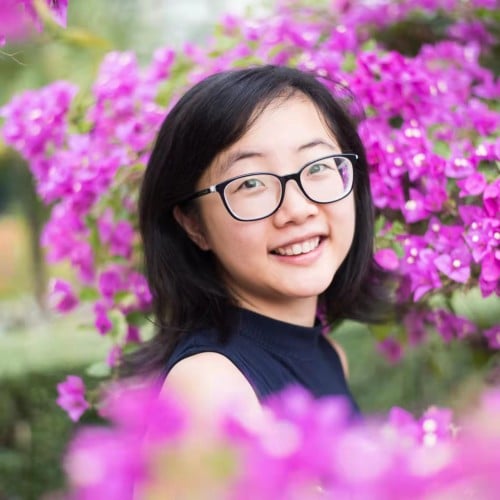
HK’s International Mathematical Olympiad team achieved best results for city since 1988
Solving complex problems, winning medals, and representing Hong Kong at at an international competition – six students are making maths more interesting
 The Hong Kong team (from left) William Cheung, Arvin Leung, Harry Yu, John Michael Wu, Samuel Lee, and Mandy Kwok.
The Hong Kong team (from left) William Cheung, Arvin Leung, Harry Yu, John Michael Wu, Samuel Lee, and Mandy Kwok.The home advantage doesn’t just apply to sports. Academics can take advantage of it too, as the Hong Kong team proved when they came away with three golds, two silvers and one bronze medal, and ranked ninth overall in last month’s International Mathematical Olympiad (IMO), hosted at the Hong Kong University of Science and Technology. That’s the best result since Hong Kong first participated in the competition in 1988.
Young Post spoke to the six students on the Hong Kong team about how being on home ground gave them the upper hand.
“When you know there are some teams arriving a week early just to get used to the climate and the food, and to get over jet lag, you realise that having the competition at home ... helps us reach our potential,” says Harry Yu Hoi-wai, gold medallist and a Form Five student from La Salle College.
After two days of 4.5 hour-long tests on July 11-12, the contestants got their results on the night of July 14.
“I was in my dorm room and on my computer [at the time]. We were told the results would be out [on the official website] by nine, so I kept refreshing every 30 seconds,” says another gold medallist John Michael Wu, Hong Kong International School’s (HKIS) Grade 11 student.
The results were released one hour late and upon hearing them, the leaders and coordinators of the Hong Kong team took the students for a “gourmet feast” to celebrate, says Harry.
“We ordered everything we could from McDonald’s,” say the team, laughing.
Most of the them took part in last year’s IMO in Thailand, except for 16 year-old Arvin Leung Yui-hin from Diocesan Boys’ School.
“It’s my first year, so I didn’t have high expectations and hence no pressure,” says Arvin, who brought home a silver medal.
Many of the team members told Young Post that this year has been quite different for them: with the competition at home, they got to celebrate with their families once the results were out.
“Last year, the first thing we did after we got the medals was to get straight on a bus,” says Harry.
Competing in Hong Kong also meant they had a lot more support.
“At the opening ceremony we’d hear ga-yau [add oil] just about everywhere we went and anytime we met a Hongkonger,” says William Cheung Wai-lam, a Form Six student from Queen Elizabeth School who won a silver medal.
“It’s at home, so you want to do well,” says Michael, adding that everyone was a lot more focused in the weeks leading up to the contest.
The team of six were chosen after seven rounds of tests, which started a year ago.
IMO is an individual competition, but they have been training as a team – in the weeks leading up to the competition, that meant intensive sessions twice a week that lasted for five hours at a time.
Bronze medallist and Form Five student from Baptist Lui Ming Choi Secondary School Mandy Kwok Man-yi was the only girl on the team. She says training as a team meant they could cram together, and exchange different opinions to inspire one another.
Michael agrees that it’s good to be exposed to different ideas and more perspectives but says studying alone has its advantages:
“If you are alone, you can take a step back. Forcing yourself to think about things improves your problem solving abilities.”
Most of them were introduced to the mathematics Olympiad in secondary school.
“It was a new world for me,” says Harry. “Maths at school is just about short answers, no proof writing required, which is not actual mathematics,” he explains.
“The reason students dislike maths, I think, is that the maths they do in school is very technical and computational ... but IMO is all about elegant arguments ... you look at the problem from a clever perspective and you see it immediately,” adds Michael.
“In IMO, even though there is a model answer, there could be a lot of different solutions. The model answer is not the only answer; that mindset is not forced on you – on the contrary, IMO tries to inspire you to look for different solutions,” says Samuel Lee Shun-ming, a Form Five student from CNEC Christian College and gold medallist.
“To solve the first question in this year’s competition, none of us used the same solution as the model answer, but every one of us six had different solutions – and they were all correct,” says Harry. He believes that this way of thinking – rigorous, organised and logical – is great preparation not just for IMO, but also for daily life.
With the gold medals in their bags, Samuel and Michael hope to compete in next year’s IMO in Brazil.
“I want to solve more interesting problems ... and socialise more,” says Michael, the only non-Chinese speaking member on the team.
“He says that every year!” laugh Harry and Mandy.
